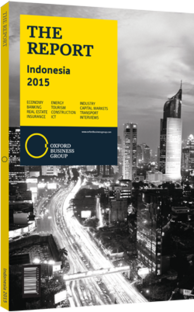Sumit Dutta, CEO, HSBC Indonesia: Interview

Interview: Sumit Dutta
What measures should Indonesia implement to harness its growth potential going forward?
SUMIT DUTTA: Indonesia is already one of the fastest-growing markets in the world. In terms of GDP growth in the last decade, Indonesia ranked third after China and India. By size of the economy, of the G20 countries Indonesia ranked 16th, with China, Japan, India and South Korea the only Asian countries to rank ahead of it. As I have said before, Indonesia is too big to ignore and too attractive to miss. However, the country has the potential to grow even faster than it is today and to emerge as an Asian economic superpower. To do this, Indonesia needs to ensure it remains attractive and competitive for international and domestic investors.
Some want to protect domestic enterprise by adopting steps to limit or restrict foreign competition. I would argue that to serve the long-term interests of Indonesia, the country needs to encourage foreign investment and even foreign competition so that its own domestic standards become higher.
The government has been clear that it wants to encourage investment from overseas. It also recognises that the world has become very interconnected, and Indonesia can benefit from increasing trade with other nations. I am confident the government will take the country in the right direction.
How prepared is Indonesia for external shocks?
DUTTA: I believe Indonesia is well prepared for potential shocks to the market, both external and domestic. Debt to GDP is very conservative in Indonesia, at about 25%, compared to an Asian average of around 100%. Some highly-leveraged countries even have ratios above 300%. This alone helps to insulate Indonesia from a big economic crash. Additionally, after the 1998 economic crisis, banks are much better prepared to deal with economic shocks. In general, banks today are well capitalised, with tested risk management frameworks in place. In 2014 banks were willing to slow their lending growth from 22% in 2013 to 11% to be prudent and focus on asset quality. The overall capital adequacy ratio of the industry rose to 20% in 2014, up from 18% in 2013. This is prudential banking in practice.
In addition, the Indonesian regulators are strong and very cautious about growing the banking system sustainably. In recent years we have seen the central bank issue regulations to govern offshore borrowing in the private sector in order to prevent future market shocks. There have been a number of other prudent regulations passed to ensure banks are well capitalised and monitored, and this will help to keep the system safe. Moreover, from talking to customers I have a sense that consumers have more confidence in the Indonesian banking industry than in the past.
What can foreign banks do to foster development?
DUTTA: I am grateful that the government is taking steps to drive infrastructure projects to support the economy. Indonesia needs and deserves better infrastructure to realise its potential to be an economic superpower, and this is a much-needed step in the right direction.
I believe international banks like HSBC can play a major role in this drive. They can promote Indonesian infrastructure projects to their customers across the globe – customers who have capabilities in planning and executing these types of projects. International banks can also offer financial solutions and access to global capital markets to involved parties to improve the commercial viability of the projects. Furthermore, they can share their market view and experiences with the government and other stakeholders, enabling these projects to be structured more efficiently.
I know a number of international banks have been working with the Indonesian government, state-owned entities and private sector actors on key infrastructure development projects. They have been collaborating since the early stages of these projects to help structure and promote them internationally, and to secure financial commitments to fund them. I believe that this kind of mutually-beneficial partnership will continue.
You have reached the limit of premium articles you can view for free.
Choose from the options below to purchase print or digital editions of our Reports. You can also purchase a website subscription giving you unlimited access to all of our Reports online for 12 months.
If you have already purchased this Report or have a website subscription, please login to continue.

